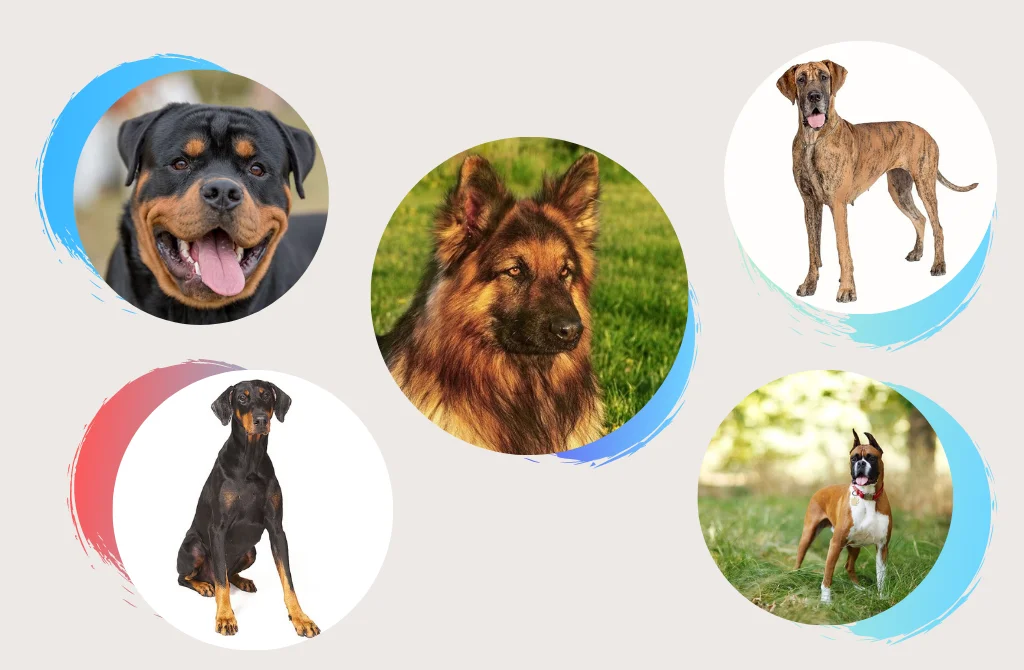Some dogs are bred to protect their home and family, while others can be excellent guard dogs because they are alert, intelligent, and highly trained. If you are looking for a Family Guard dog, there is no shortage of options.
Table of Contents
Some breeds are better at understanding an owner, and other breeds understand the whole family and protect each member as one of its own which was also mentioned at BreederBest.com.
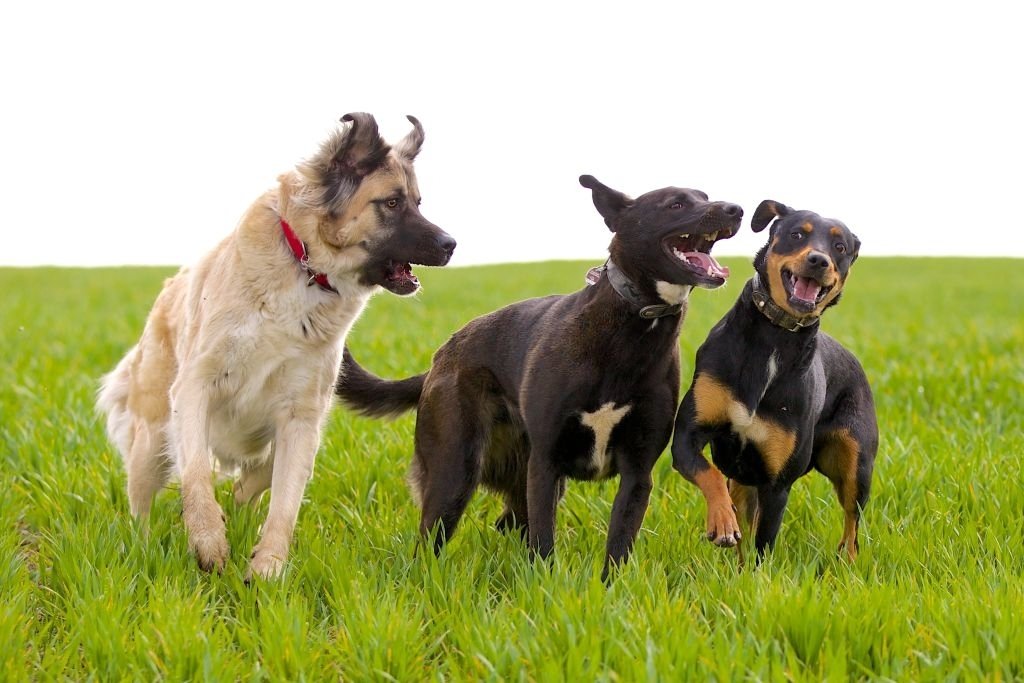
All of these species are considered great defenders – some require more rigorous training than others. Just because a dog has a protective nature does not mean that they naturally knows how to act as a guard dog.
When you choose a guard dog, consider personality, size, and training needs to help you determine which breed is best for you.
TOP 5 BEST FAMILY GUARD DOG BREEDS
| Instincts | German Shepherd | Rottweiler | Boxer | Great Dane | Doberman Pinscher |
|---|---|---|---|---|---|
| Loyalty | Extremely loyal to family | Deep loyalty | Loyal and affectionate | Gentle, loyal nature | Deep loyalty |
| Protective | Innate protective nature | Strong protective | Protective by nature | Protective if needed | Fearless protectors |
| Territorial | Yes | Yes | Somewhat | Can be territorial | Can be territorial |
| Alertness | Keen senses, alert | Highly alert | Alert and responsive | Watchful, observant | Highly alert |
| Courage | Willing to confront | Fearless | Fearless and brave | Typically gentle | Fearless |
| Intelligence | Highly intelligent | Intelligent | Eager to learn | Reasonably intelligent | Easily trainable |
| Obedience | Highly trainable | Responds well to training | Responsive to commands | Adaptable | Easily trainable |
| Playfulness | Moderate | Can be playful | Playful nature | Playful | Moderately playful |
| Size | Medium to large | Medium to large | Medium to large | Giant breed | Medium to large |
| Deterrence | Can be intimidating | Often seen as imposing | Less imposing, friendly | Size alone can deter | Can be imposing |
| Watchfulness | Highly watchful | Watchful and vigilant | Keeps an eye on things | Observant | Quick to react |
| Adaptability | Adaptable in guarding | Adaptable in guarding | Adaptable in guarding | Adjust guarding | Adaptable in guarding |
| Energy Level | Moderate to high | Moderate to high | High energy | Moderate to high | Moderate to high |
GERMAN SHEPHERD
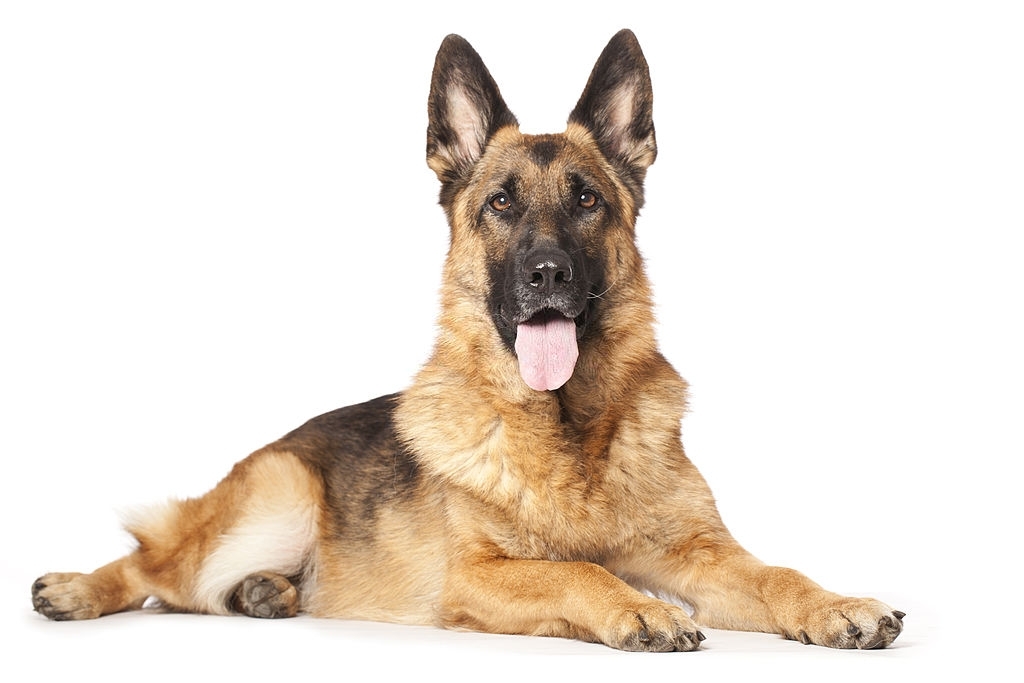
German Shepherds topped the list of best family guard dogs in our opinion due to their innate tendency to listen, learn, and obey commands.
It is believed that German shepherds will learn a command in less than 4 iterations. Shepherds deal with their self-confidence as they choose to board on their play activities.
They have thick fur, which makes them respond well to cold temperatures and this contributes to their toughness.
Also Read: Shaved Australian Shepherd: Is It Okay To Shave An Australian Shepherd?
German Shepherds understand their homes well and are wary of intruders. They are incredibly sized and can remove any size of a human without much trouble.
During World Wars, they were used to track enemy scents and also in mine detection.
These days German shepherds are the most common police dogs.
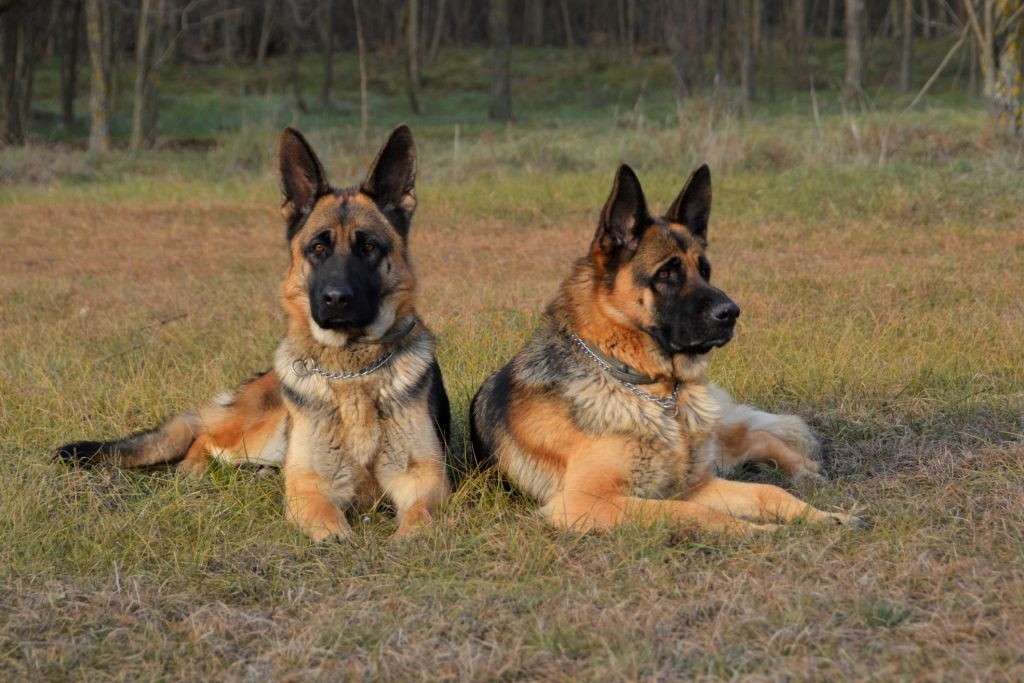
German Shepherds are very eager to learn and are eager to show their owners what he has learned. With the right patience and love, raising a German Shepherd is very easy compared to most breeds and they have very few health problems.
There may not be a good dog breed in the world for protecting your family and developing adults and children alike.
ROTTWEILER
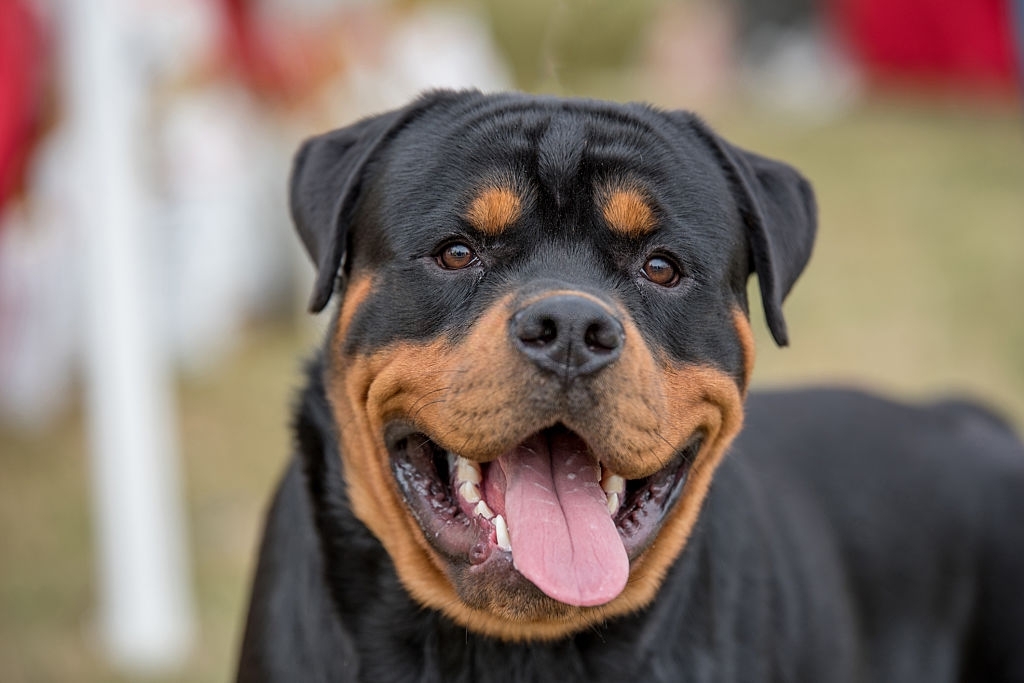
The Rottweiler, if not properly trained, can be very aggressive to breed around young children. However, if properly trained, it is one of the best family guard dog.
They are described as one of the most intelligent dog breeds in the world and can be trained as excellent guard dogs. It is a race that we encourage to train professionally.
Their intelligence makes them very obedient. Despite being aggressive by nature they are very loving and ready to please animals.
In recent years, the intelligence and aggressive behavior of this breed have made them great police dogs. They are used for personal protection in both home settings, as well as for protection on the go.
Also Read: 7 Reasons to have a fluffy bed for dogs
The need for intensive and comprehensive training cannot be overstated. They are intelligent, and their Natural instincts make them want to be leaders. If you can raise them properly, they follow your commands strictly.
They have an excellent health history and suffer from very few diseases. Their biggest concern is cancer, but it is inherent in most dog breeds. Their feeding should be monitored and excessive exercising makes them more aggressive.
In a home environment, these dogs are obedient and loyal and make great family guard dogs.
BOXER
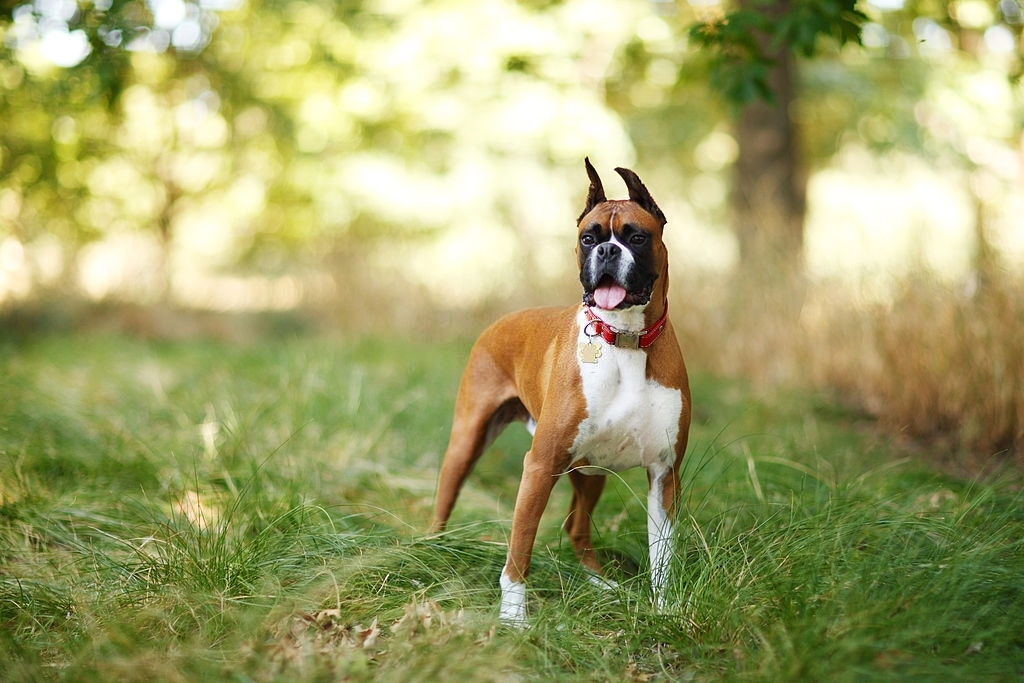
Boxers are highly intelligent and great energy breed dogs that do a surprisingly great job of reading strangers’ intentions.
They are small but can grow up to over 100 pounds but look scarier than they are.
This breed is very active and alert and has a strong passion for everything they do. Boxers seek affection from adults and children and often go out of their way to gain love and attention.
When it comes to defense, boxers are well aware of what is going on and will use their athleticism to protect their families, making it a loyal and best family guard dog breed.
Also Read: Why Your Dog Should be on Leash in Public Areas
Boxers hail from the family of Bulldogs which gives them a frightening look. It gets its name from the hilarious way the race can stand on its hind legs and jab at you with its front legs. Boxers are believed to have originated from Germany.
Boxers, from the start, are very powerful. There is also a long list of health issues during their lifetime, especially with Pure breeds. Some of these include cancers, bone problems, bloating, and intestinal problems.
They are a shorthaired breed that does not require much brushing, but consistent exercise does this breed well. Because of their delicate bone problems, it is best to keep boxers on the soft ground if they exercise for a long time.
They are very versatile, but if you want to behave well as an adult you need to pay a lot of attention in the early life of a boxer.
GREAT DANE
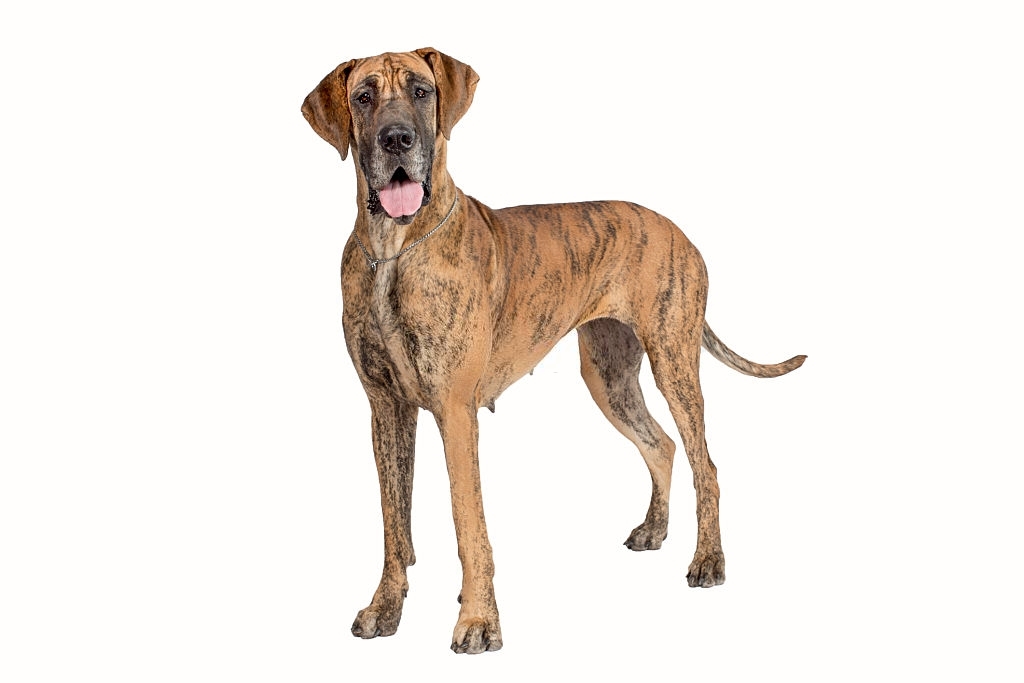
The Great Dane, known as the German Mastiff, is intimidating in stature, but delicate in nature. They are surprisingly great around children.
Their strength is well-balanced because they are not clumsy and usually have a great idea about their size and location around the house.
The Great Dane can be considered more of a “watchdog” than a “guard dog”. The phrase “His barking is worse than his bite” applies a lot to Dane, because their bark is very scary, but can’t defend themselves from an intruder.
Dane, despite its size, is actually far from the most terrible race and conflict.
The Great Dane is efficient in hunting and guarding homes. The Great Danes were used in both World Wars because they had a wonderful smell and were used to identify enemies in the field.
Due to their great size, the Great Danes need regular exercise. However, too much exercise can lead to problems for this species, so the best exercise is really a daily walk. From the beginning, Danes should train obedience with positive reinforcement.
Danes need constant attention until the house breaks down. Continue their wandering to confined areas and make sure to take them out frequently until they are comfortable with the rules of the house.
DOBERMAN PINCHERS
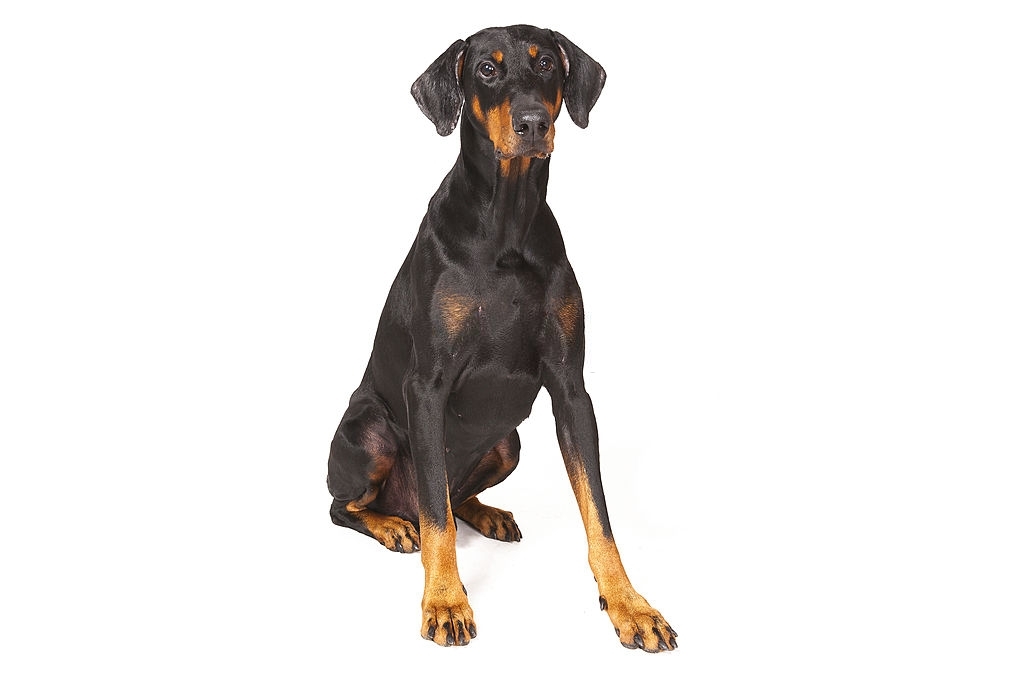
Doberman Pinchers are considered to be very reliable and, if properly trained, they are well-tuned to their owners’ orders. Pinchers are of great size, very agile, and athletic.
This breed is highly cautious towards strangers but respects the order of their owner and often considered as a one-man dog which makes them great to protect families.
Their barking and growling are equally frightening, and intruders should think twice before entering your home. Puppies must be raised in a home with children and they should not be brought into a home with young children after puppies.

Pinscher was first bred in Germany. They were bred as watchdogs, and those instincts continue to this day. Pinscher is descended from a wide range of species but is believed to be very closely related to greyhounds and terriers.
This combination gives them great athleticism a loyal attitude.
They were brought back to the United States from Germany after World War II and have been used in police and military situations to this day, but in recent years, they have been used less and less in these roles.
Doberman Pinchers shed less compared with other dogs as they are shorthaired breeds that require little more than exercise and diet to prosper at home.
They are difficult to train and require dominance from an early age to establish control and command of these dogs throughout their lives.
Their life expectancy is very short, but they do not have many health problems if they have regular vet checks. Their tails and ears are clipped to “maintain racial standards”, however, this is not always medically necessary.

